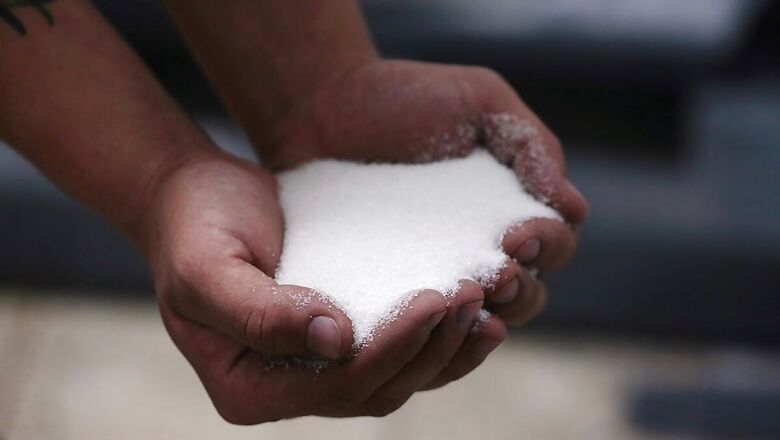
views
Sugar mills, oil marketing companies (OMCs) and banks are willing to enter into an agreement to create an escrow account for payment of ethanol procurement, a move that will enable sugar factories to avail soft loans for setting up distilleries, the food ministry said on Saturday.
Banks could now consider giving loans to even those sugar mills that have weak balance sheets for setting up new distilleries or expanding the existing facilities to manufacture ethanol.
A meeting co-chaired by Secretary (Food & Public Distribution), Secretary (Ministry of Petroleum and Natural Gas) and Secretary (Department of Financial Services), was held on Friday with the representatives of leading banks, OMCs, Cane Commissioners of major sugar-producing states and sugar industry bodies to discuss ways to boost ethanol supply.
"It was agreed that as producers of ethanol (sugar mills), buyers of ethanol (OMCs) and the lenders (banks) are willing to enter into a tripartite agreement about producing, buying and paying for the ethanol through an escrow account etc, the banks can consider giving loans to sugar mills even with weak balance sheets," an official statement said.
This would facilitate mills to avail loans from banks to set up new distilleries or to expand the existing ones, it added.
The move would lead to enhancement of the overall distillation capacity in the country and also help in achieving the blending target of 10 per cent by 2022 under the Ethanol Blended with Petrol programme.
To achieve blending targets, the Centre is encouraging sugar mills and molasses-based standalone distilleries to enhance their ethanol distillation capacity.
Soft loans of about Rs 18,600 crore are being extended through banks to 362 projects of 600 crore litre capacity. An interest subvention of about Rs 4,045 crore for five years is being borne by the government.
"So far, loans have been sanctioned to 64 project proponents & completion of these projects would increase ethanol distillation capacity by 165 crore litre in another two years. Thus the ethanol distillation capacity in the country would increase from 426 crore ltrs per annum to about 590 crore ltrs per annum by 2022," the statement said.
During 2018-19 marketing year, about 189 crore litre of ethanol was supplied by sugar mills and grain based distilleries to OMCs, thus achieving 5 per cent blending target.
In the current 2019-20 marketing year, efforts are being made to supply 190-200 crore litre of ethanol for blending with petrol to achieve 5.6 per cent blending.
The Centre has set 10 per cent blending target for mixing ethanol with petrol by 2022 and 20 per cent blending target by 2030.
It was assured by the states and industry that efforts would be made to increase supply of ethanol in the current as well as in ensuing ethanol supply years, the statement said.
The food ministry said the Centre has taken various measures to improve viability of sugar industry, thereby enabling sugar mills to make timely payment of cane dues of farmers.
Going forward, it said the diversion of excess sugarcane and sugar is the long-term solution for addressing the problem of excess stock and improving viability of sugar industry.
Ethanol is a green fuel and its blending with petrol saves the country's foreign exchange.
To encourage sugar mills to divert excess sugarcane to produce ethanol for blending with petrol, the government has allowed production of ethanol from B-Heavy molasses, sugarcane juice, sugar syrup and sugar, and has also fixed the remunerative ex-mill price of ethanol derived from these feed-stocks.
The state-wise targets for ethanol manufacture have been fixed. Sugar mills/distilleries have been advised to utilize at least 85 per cent of their existing installed capacity to produce ethanol.



















Comments
0 comment